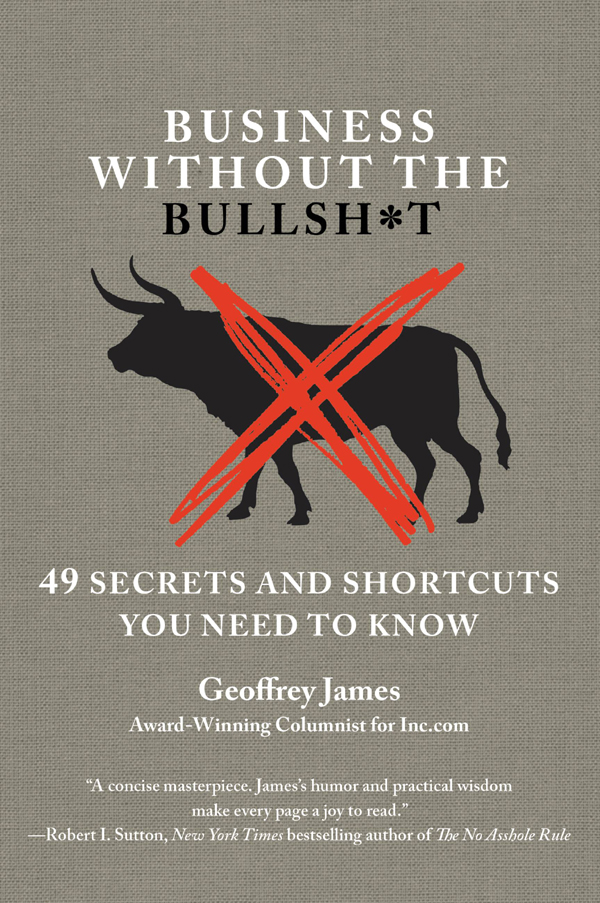For the past thirty years, Ive been on a quest to discover tactics and techniques that cut through the business worlds bullsh*t and help you get things done more quickly and easily than you ever thought possible.
As a journalist Ive interviewed hundreds of executives, ranging from living legends to unknown entrepreneurs struggling with their initial start-ups, as well as dozens of sales and marketing gurus. As an engineer and marketer Ive participated in the growth of a wildly productive organization and observedfirsthand and up closeas two huge companies disintegrated under the weight of their own collective stupidity.
For the past seven years Ive had daily conversations about surviving and thriving in the corporate world with the millions of readers of my blog, which has appeared on BNET and the CBS News website, and is currently on Inc.com.
Business Without the Bullsh*t is the result of that quest.
This is not a book of theory. Its a collection of practical approaches to the real-life situations that take place every day inside just about every company.
There is, however, an underlying philosophy about business and bullsh*t that underpins this entire book. You can use this book without knowing that philosophy, but for readers who appreciate context, here goes:
EVERYONE IS A FREELANCER
In the past, most businesspeople worked for a specific company and often expected to work for that company for decades. Some firms even touted a policy of lifetime employment.
In those days there was an implicit contract between employer and employee. The employer offered job security and in return the employee was loyal. Employers looked askance at a prospective employee who hopped from job to job.
At the very bottom of the corporate totem pole were freelancers and consultants, the losers who couldnt land a real job and were thus reduced to constantly selling and reselling their services.
That world is gone forever. Rather than offering job security, companies now move jobs wherever they can be done more cheaply. Similarly, those who stick with one employer for too long now seem out of touch or lacking in initiative.
Today everyone is a freelancer. Even if youve got a salaried position with benefits, perks, paid vacations, and a fancy title, youre still a freelancer. If you arent constantly selling and reselling your services, youll be unemployed faster than you can say pink slip.
This means that, above all else, you must not just keep your options open but actively and constantly develop new job opportunities. As a freelancer, your goal must always be to land your next job, hopefully one thats more fun and pays better than the one youve already got.
YOU ARE YOUR BOSS
Inherent in the obsolete notion of job security is a management hierarchy: you work for a boss, who works for a bigger boss, who works for the CEO, who works for the board of directors, which works for the investors.
While that structure still exists in the corporate world, when youre a freelancer, it no longer makes sense to think of yourself as being managed by somebody else. A boss is more like a client or customer, which means you must manage the relationship.
Similarly, the old concepts of what it means to be the boss are increasingly meaningless. Your employeesthe ones who are smart and therefore get that theyre freelancersarent going to fall in line just because youve got a job title.
Thats just the start. As a freelancer you must be capable of managing not just upward and downward, but sideways as well. You must influence and convince your coworkers to help you achieve your goals, usually by helping them achieve theirs.
Finally, and most important, you must learn to manage inwardly, controlling your thoughts, habits, and actions so they serve your greater purpose.
YOU MUST SELL YOURSELF
Because youre now a freelancer and your own boss, youre also a salesperson, whether you want to be one or not.
If you cant (or wont) sell yourself, your services, and your ideas, you might as well give up now. If youre not unemployed already, you will be soon. And youll probably stay that way.
Despite this, a surprising number of people are reluctant to learn how to sell, probably because popular culture views the process of selling with a combination of disdain, distrust, and disgust.













